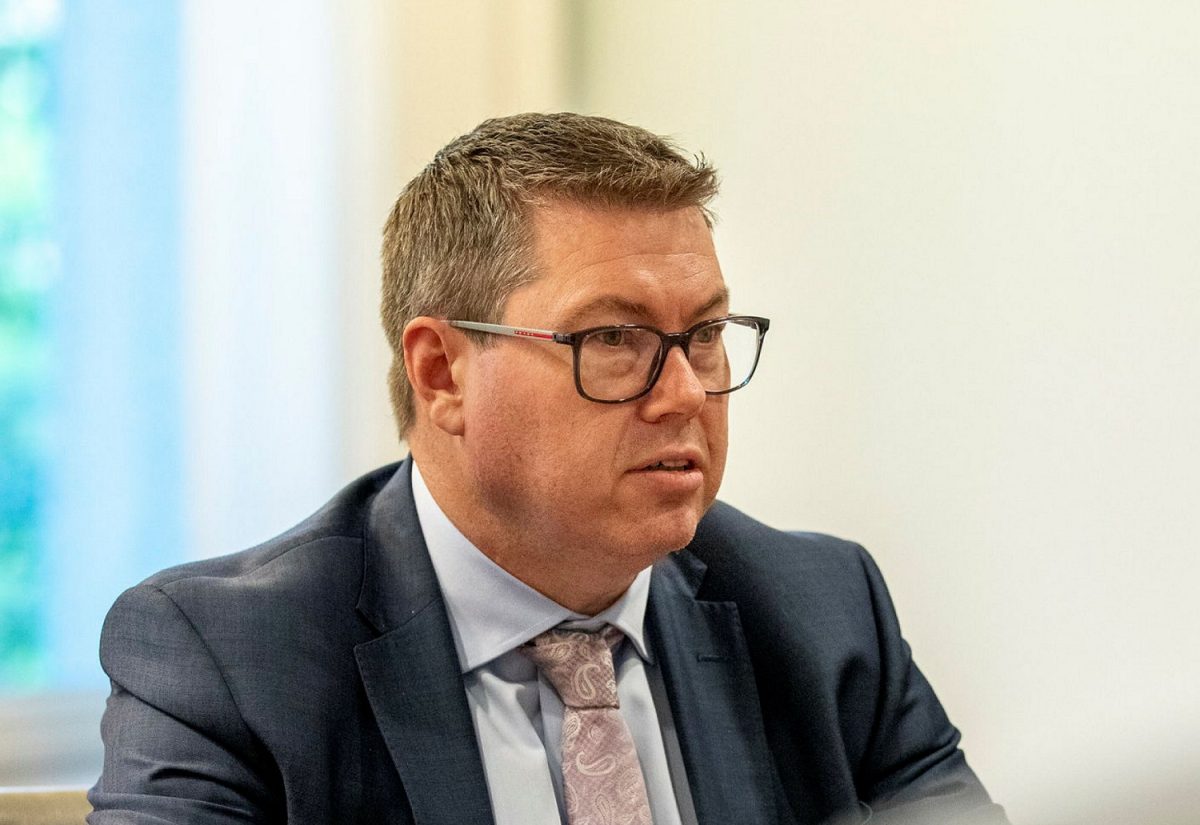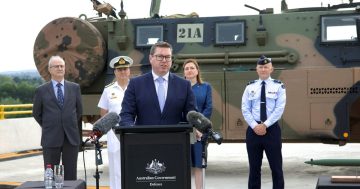
Defence Industry Minister Pat Conroy says industry is critical in Australia responding to the strategic circumstances we face. Photo: ADF.
In a speech reminiscent of a pre-game rev-up by a coach, Defence Industry Minister Pat Conroy addressed the Australian Industry and Defence Network (AIDN) national annual gala dinner at Canberra’s National Arboretum on Wednesday (14 June).
Entitled ‘Defence industry in a post-DSR world’, Mr Conroy’s speech said industry will not only benefit from April’s Defence Strategic Review (DSR) but also be critical to the DSR’s success.
Defence industry is recognised as one of nine fundamental inputs to capability (FIC), sharing equal billing with organisation, facilities, personnel, training, major systems, supplies, command and management, and support.
“You are essential in the defence of the nation,” Mr Conroy said. “And that criticality is even more apparent if we consider the environment we’re in.”
Mr Conroy re-stated the government’s position that the current strategic environment was the catalyst for the DSR. “We intentionally constructed a process to drive recommendations in six months, not in the two years that you normally see with a white paper process.”
He said the four most critical elements of the DSR were: the shift to a national defence strategy; the move from a balanced to a focused force; an increase in defence funding; and significant procurement reform.
“Those four themes led on to six immediate priorities, which are: pursuing AUKUS Pillar 1, the acquisition of nuclear-propelled submarines; secondly, investing in strike and the Guided Weapons Enterprise; hardening of the northern bases; a commitment to defence innovation; an investment in the ADF workforce and the public service; and a recommitment to regional partnerships in our region,” he said.
Minister Conroy said industry needs to be a critical partner in these processes, particularly in procurement, a key part of the DSR he says didn’t capture as much attention as other elements of the document.
“It’s very technical and it’s not quite as sexy as talking about long-range strike or nuclear-propelled submarines, to talk about minimum viable capability or contracting reform,” he said. “But it is critical.”
He said that, rather than not accepting a new capability until it’s 100 per cent of what was contracted as has happened in the past, the ADF and industry need to shift to a minimum viable capability mindset.
“Recognising the need for speed and urgency. Recognising that the last 10 per cent of capability is often the hardest to secure and is often the part where we see the biggest litigation between the department and industry,” he said.
“This is incredibly important for getting platforms to the ADF as soon as possible,” he added. “It also gives a leg up to Australian industry because we will not be adopting a minimum viable capability for [Foreign Military Sales] cases.
“What minimum viable capability is about is supporting developmental projects. Developmental projects where we need to make maximum advantage and that’s where Australian industry is uniquely located.”
He said the second part of the procurement reforms he plans to implement are contracting reforms. He admitted he wasn’t the first defence industry minister to stand up and say this, and he didn’t ask the audience to believe him. “I ask you to believe in our actions when we put them together,” he said.
He said this will mean more pressure will be placed on Defence to streamline the process, but he also said it goes two ways. “That means more frank conversations between us and the Australian National Audit Office.”
He said this won’t apply to the whole contracting cycle, but will certainly be applied at the start so the process can be accelerated. “These reforms will be a critical part of the Defence Industrial Development Strategy that’s being produced right now.”
Mr Conroy told the audience that he would be placing a greater emphasis on exports. “Exports focus through reshaping the global supply chain initiative and through co-development projects, which is a great opportunity for local work to win significant contracts in global supply chains.”
Back to the budget, the Minister said there was a commitment in the DSR to add an additional 0.2 per cent to the defence budget by 2030, but failed the mention the impact of inflation on the budget, which has effectively removed five per cent in real dollars – not to mention the falling exchange rate, which will add hundreds of millions of dollars to the cost of buying systems from the US.
In closing, he said the Australian Defence Force needs industry. “You are critical in Australia responding to the strategic circumstances we face. Your innovation, your commitment, your agility is critical to giving the ADF the weapons that they need to defend this nation.”
Original Article published by Andrew McLaughlin on Riotact.











